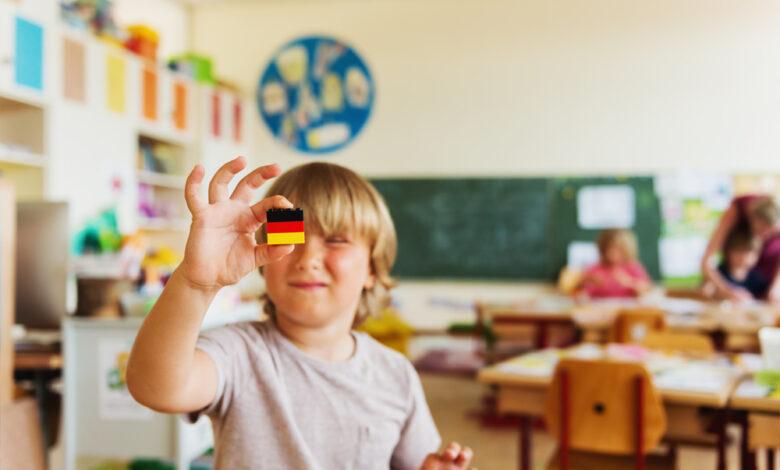Problems of integration of Ukrainian children in Germany: results of a study by the Federal Institute for Population Research

The full-scale war forced millions of Ukrainians to seek refuge abroad. A significant part of them are children who today are trying to build a new life in European countries, in particular in Germany. However, adaptation to a new environment is a difficult and painful process, especially for teenagers. Integration into a foreign school, finding friends, the language barrier, constant anxiety about parents who have remained in Ukraine — all this creates additional difficulties for Ukrainian youth. This is evidenced by a new study Federal Institute of Population Studies (BiB), which turned out to be indicative and at the same time alarming.
Germany has accepted more than a million Ukrainian refugees, of which 357,000 are minors. These children were forced to suddenly leave their homes, leave their friends and their usual lives and start all over again in a foreign country. That is why the issue of their integration, both in the school environment and in German society in general, has become especially relevant.
The study showed that although the majority of respondents – namely 92% – did not know the German language at all at the time of arrival, today 51% of the children already believe that they speak German well or very well. This testifies to the colossal efforts of both the children themselves and educational institutions. But, despite academic success, language adaptation does not guarantee full integration and psychological comfort.
Only 62.7% of the surveyed Ukrainian schoolchildren said that they feel part of the team at the school where they study. In other words, more than a third of the children were either unable to adapt or still feel like strangers in the new environment. For comparison, refugee children from Syria or Afghanistan feel a much greater sense of belonging to their schools after two years in Germany.
According to Katarina Spies, the director of the study, many German schools have not yet been able to fully integrate Ukrainian children into school life so that they feel comfortable and accepted. The reasons lie not only in the language barrier, but also in the insufficient number of extracurricular activities that involve Ukrainian youth, as well as in the lack of stable social ties with German peers.
Her colleague, researcher Lyubovika Gambaro adds: “It is the presence of friends in Germany, good language skills and the presence of both parents that significantly improve the well-being of Ukrainian children. Extra clubs, sports and extracurricular activities have a direct relationship with their level of satisfaction with life in Germany.” She emphasized that this is exactly what the German integration and education policy should pay attention to if it wants to achieve real adaptation of Ukrainian children.
Researchers advise to more actively involve Ukrainian teenagers in school clubs, sections and sports teams, as this not only improves language skills, but also creates the necessary social ties. It is extracurricular activities that help children feel part of the community and build relationships with local peers.
Another aspect of the study concerned the plans and intentions of young Ukrainians for the future. Here the researchers were in for a surprise: the desire to stay in Germany among children and teenagers turned out to be lower than among their parents. Only a third of the surveyed Ukrainian children and youth want to stay in Germany forever. At the same time, according to another study, half of the parents said they would like to stay in the country.
The desire to return to Ukraine is especially pronounced among those who came with only one parent, while the other – mostly the father – remained in the Motherland. This is 29% among all respondents. Instead, almost half of Ukrainian children — 47% — now live in Germany with both parents.
Experts emphasize: connection with the family, having both parents nearby, new friends and active participation in public life are key factors influencing how Ukrainian children perceive their life in a new country.
In the conclusions, the researchers emphasize: regardless of whether Ukrainian children stay in Germany forever or return home after the end of the war, German society will benefit. After all, on the one hand, integrated Ukrainians can strengthen Germany’s human capital. On the other hand, the acquired knowledge, experience and connections will allow them to make a significant contribution to the reconstruction of Ukraine.
Today, the results of the survey unequivocally show that the process of adaptation of Ukrainian children to the new reality is complex and requires the active participation of the state, schools, and public organizations. Not only the well-being of these children depends on how effectively Germany will help them feel at home, but also the success of the integration policy as a whole.





